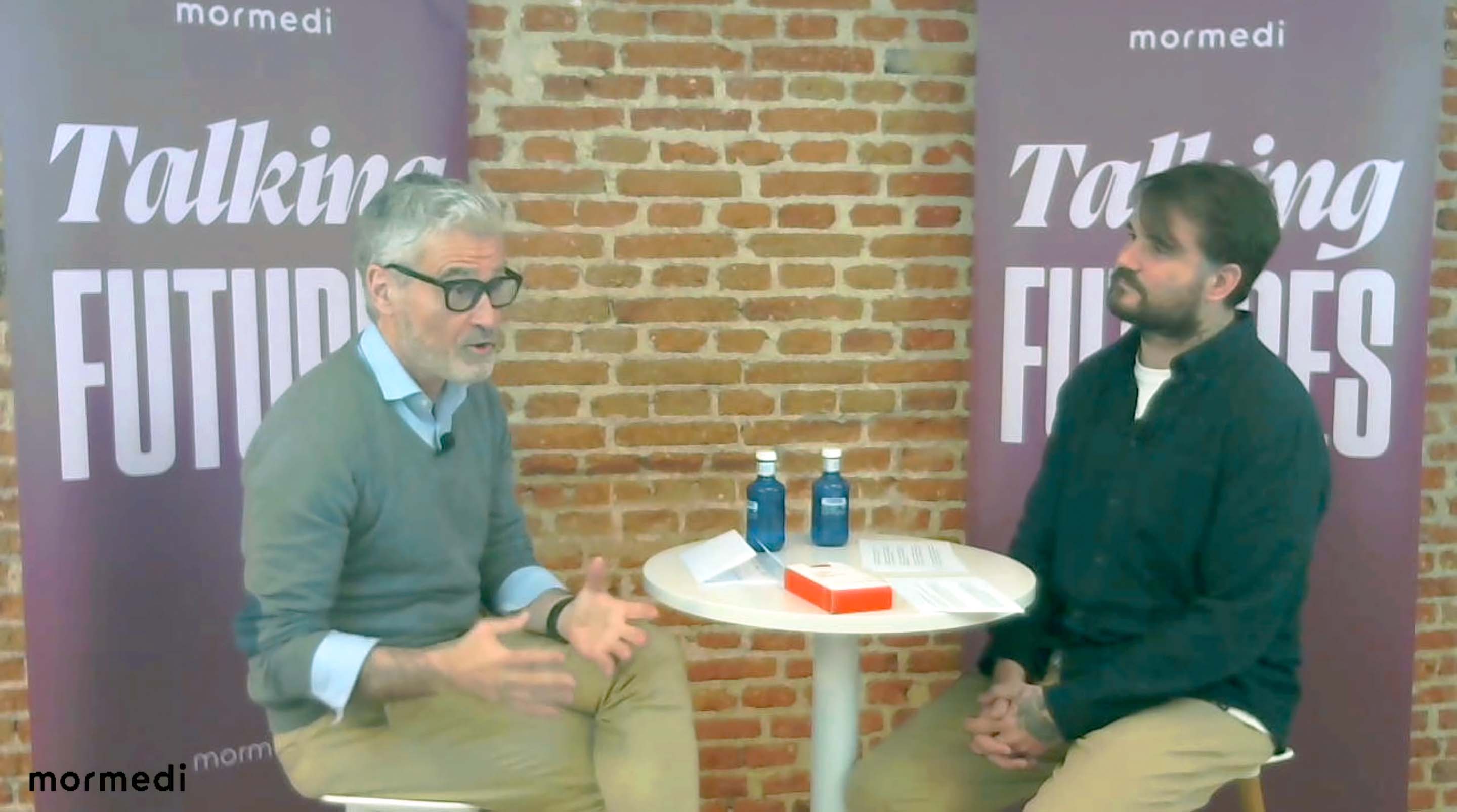
Talking Futures #5: Reinventing processes
Enrique Díaz-Barceló Suanzes
Marketing & Communications
Last Thursday we had the opportunity to enjoy an interesting conversation with Adolfo Ramirez in a new edition of our Talking Futures, Mormedi's talks about the future and what it holds for us.
Adolfo is a professor at IE Business School and The Valley Digital School and has been General Manager at Banesto and Deputy General Manager at Banco Santander, among other things. He is also the founder of Vida Silver, an initiative that brings together the physical and the digital in search of being the meeting point for all those who want to contribute to the development of the Silver Generation.
During the talk we addressed the issue of reinventing processes in companies, how they can and must adapt to the new times with technology and talent and why it is necessary for them to do so. Adolfo stressed that start-ups have it easier than large companies, since they are more willing to take action to improve their processes, while large companies tend to relegate processes to the last stage of their decision making.
We share with you in this article some excerpts from the conversation, which you can watch soon in video on our Youtube channel and listen to in audio on Spotify.
Companies are redefining their internal processes, introducing agile methodologies or training employees with new skills to gain competitiveness in efficiency or quality. We are all aware that many operations are being digitized and that large retail companies already have robots in their warehouses. Today we are going to talk about reinventing processes in companies. How did we get here, how did we get to this point?
I am going to try to demonstrate the importance of processes in organizations, because when you build transformation, you are building it from the process. I think it is tremendously interesting and important and we are forgetting it many times, more than we should.
Why have we come this far? Well, we have reached this point because, if we understand well what is happening, there has been a technological disruption, a convergence of technologies that we call exponential or disruptive. Each one of them would have generated a disruption by itself, but there has been a convergence. Cloud, big data, artificial intelligence, internet of things, blockchain, 5G… A lot of technologies have appeared that are causing us to bring about a change in consumer behavior, and that change leads to new business models. That's what's happening and that's why we're here.
And the important thing is for companies and organizations to understand the change and understand how they can leverage those technologies. In many cases what is happening is that we are starting to invest in technology, we are starting to change business models, we are even starting to reinvent processes without knowing what our strategy is and without knowing the possibilities we have. In other words, in many cases we are starting the house from the roof up. The important thing is to understand the technology and see if our strategy is adequate for this new path. I am not saying to change the strategy, but to review it. Maybe I understand these technologies and I decide that my strategy is well defined and I continue with it; but what you do have to do, for sure, is to review the strategy in the light of everything that is happening, in the light of all these new technologies.
In this concept, the issue of processes is a tremendously important issue. Processes are, I would dare to say, like the vascular system of the body, because they are what allow you to function in the whole organization. And bureaucracy is like cholesterol. Eventually it clogs up the veins and there is a collapse. Possibly, in this context, innovation is like a healthy diet and physical exercise. If you are innovating, you are making processes much more agile, which leads you to have a much more agile and flexible organization. So, processes are at the heart of this innovation, of this transformation. We have reached this point as a result of this technological convergence and the change in customer or consumer behavior.
Are all processes suitable for review and digitization?
I would dare to say absolutely yes. What happens is that, and this is a very interesting topic, many times, when you are going to address processes, you are going to address an automation process or a digitization process, but there is a previous step, which is to see if the process is necessary.
Many times organizations enter into this dynamic of "we are going to redesign, we are going to revise, we are going to automate". Also, as a consequence of being more modern, they start "I'm going to automate this process, I'm going to mechanize this process". And automation, mechanization and digitization have probably been going on all our lives. The important thing is to take a step back and see if the process, the process that leads to the best, is a necessary process. Because the best automation of the process, for me, is to eliminate it. That is, not having to use it. And if in the relationship with customers, in the relationship with suppliers, you manage to eliminate that process and address them in a different way, possibly you have taken a step forward.
One of the trends that I'm sure you've discussed in some of the meetings you've had is zero interface. What the zero interface is about is that in the process you eliminate all the intermediate steps, you eliminate all the devices you have, and directly you are able to do that process, as we are seeing with the virtual assistants or when you use the contact less today, eliminating the need to use the card, which nowadays you use the cell phone many times. So, let's say you are eliminating steps from that process, and in many cases even eliminating that process.
So, to the question of whether all processes can be reviewed, yes, and what would happen is that you would have to eliminate some of them from the organization.


